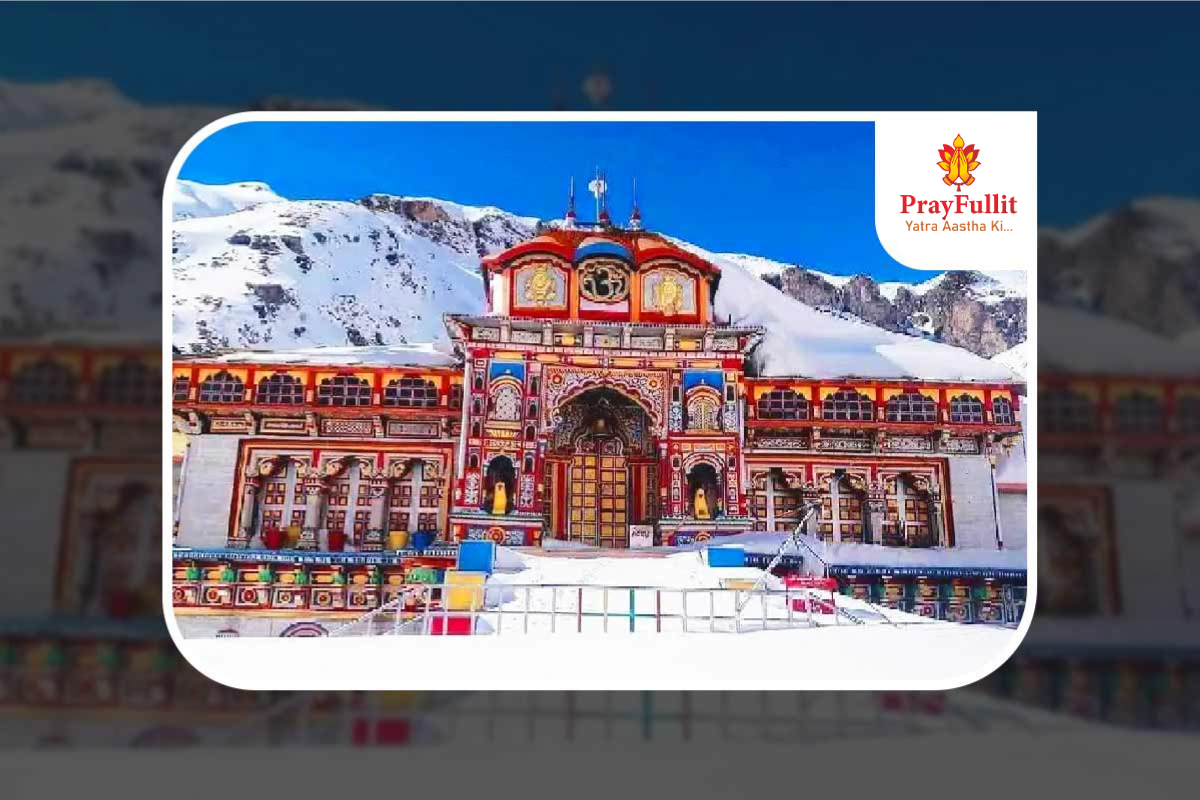
Badrinath is one of the most important and revered pilgrimage sites in India, dedicated to Lord Vishnu. It is located in the town of Badrinath in the Chamoli district of Uttarakhand. Badrinath is part of the Char Dham Yatra, which is a sacred journey encompassing four major Hindu shrines in India. It is also one of the 108 Divya Desams, which are the holy abodes of Vishnu revered in Vaishnavism.
Key Features:
Badrinath Temple:- The Badrinath Temple, also known as Badrinarayan Temple, is dedicated to Lord Vishnu. The main deity worshiped here is Lord Badrinarayan, depicted in a meditative posture. The temple is believed to have been established by the sage Adi Shankaracharya in the 8th century.
Location:- The temple is situated at an elevation of about 3,300 meters (10,827 feet) above sea level in the Garhwal Himalayas, on the banks of the Alaknanda River. The temple is surrounded by snow-capped mountains, including the Neelkanth Peak, which adds to its serene and majestic beauty.
Char Dham Yatra:- Badrinath is one of the four shrines in the Char Dham Yatra, the others being Kedarnath, Yamunotri, and Gangotri. Pilgrims undertake this journey to attain salvation and spiritual upliftment. Badrinath is also part of the smaller Char Dham in Uttarakhand, known as the "Chota Char Dham."
Opening and Closing:- The temple is open for six months each year, from April to November, due to the extreme weather conditions in the Himalayas. The opening of the temple is marked by a grand ceremony, and the idol of Lord Vishnu is moved to the Narasimha Temple in Joshimath during the winter months.
Festivals:- Major festivals celebrated at Badrinath include the Mata Murti Ka Mela, Badri-Kedar Utsav, and the annual pilgrimage during the auspicious month of Shravan. The temple is also a focal point during the religious festival of Diwali.
Panch Badri:- Badrinath is the most important of the Panch Badri (the five temples dedicated to Lord Vishnu in the Garhwal Himalayas). The other four are Adi Badri, Bhavishya Badri, Yogadhyan Badri, and Vridh Badri.